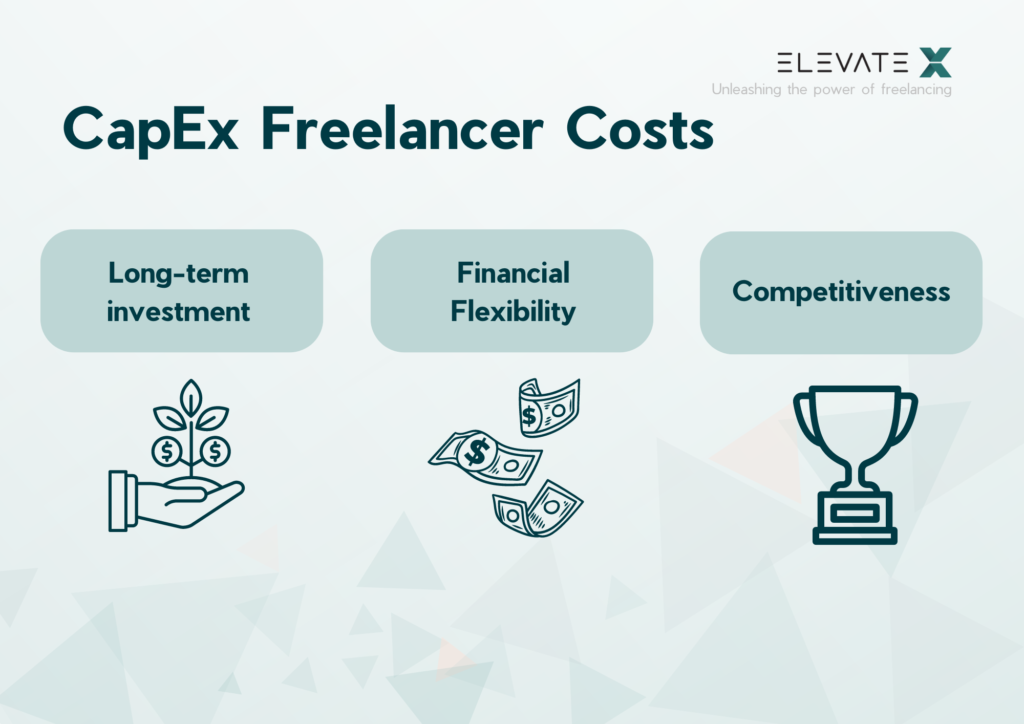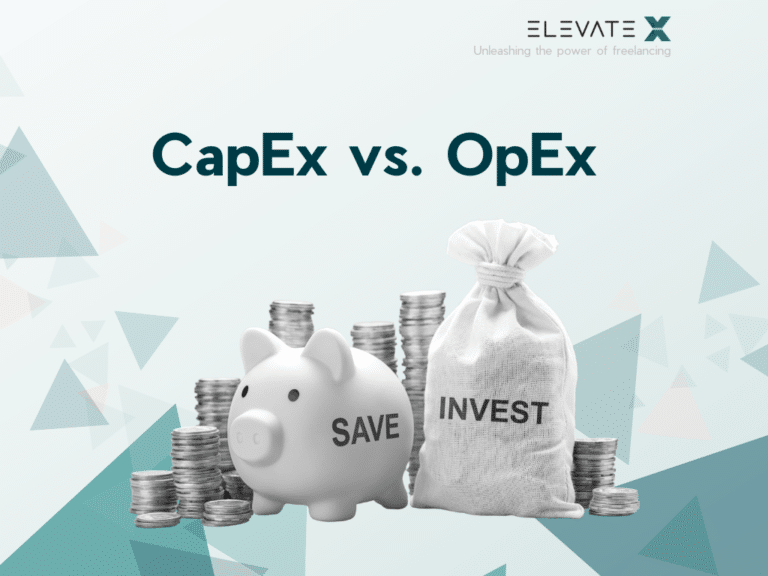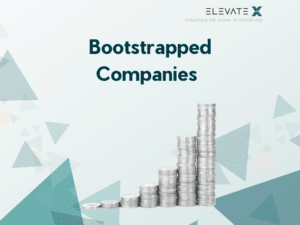In today’s dynamic business world, companies are constantly challenged to optimize their cost structures to remain competitive. Often, freelancer costs are recorded as ongoing operational expenses (OpEx), which can limit financial resources. In this blog post, we will delve into why it can be advantageous to consider freelancer costs as investment expenditures (CapEx) and how this enables companies to think long-term and increase their financial flexibility.
Definition of CapEx and OpEx
CapEx
Capital expenditures, or CapEx, are expenses aimed at creating or improving long-term assets for a company. These expenses are depreciated over time and contribute to increasing the company’s value.
OpEx
Operating expenses, or OpEx, are ongoing expenses incurred for the daily operation of a business. These include costs like wages, rent, energy expenses, and other ongoing operational expenditures.
Differences Between CapEx and OpEx
The significant difference is that CapEx represents investments in long-term assets, while OpEx are ongoing operating costs incurred for daily operations.
KEY POINTS
- CapEx refers to investments in long-term assets, while OpEx denotes ongoing operating expenses that occur daily.
- Reasons why freelancers are often considered OpEx: short-term perspective, availability of resources, and accounting standards.
- Benefits of considering freelancer costs as CapEx: long-term investment in expertise, financial flexibility, and enhancement of competitiveness.
Why are Freelancers Often Recorded as OpEx?
The widespread practice of considering freelancer costs as ongoing operational expenses can be attributed to various factors:
- Short-Term Perspective: Many companies view freelancers as temporary resources for specific projects and therefore see them as short-term costs.
- Availability of Funds: Since OpEx is typically covered by the ongoing operational budget, it is often easier for companies to record freelancer costs as OpEx, as it requires less capital commitment.
- Accounting Standards: The accounting standards and practices of many companies favor recording labor costs as ongoing operational expenses.
Why Consider Freelancer Costs as CapEx?
Deciding to view freelancer costs as capital expenditures (CapEx) rather than recording them as ongoing operational expenses (OpEx) can simplify the process of hiring freelancers. Here are some reasons why companies should consider this perspective:
Long-Term Investment in Expertise and Know-How
Freelancers often bring not only short-term solutions for specific projects but also valuable expertise and knowledge that can create long-term value for the company. By viewing freelancers as investments in long-term assets, companies recognize the potential long-term benefits of these resources. By integrating freelancers into the company’s long-term strategy, they can act as extended arms of the internal team, helping to strengthen the company’s competitiveness.
Financial Flexibility and Strategic Thinking
Recording freelancer costs as CapEx allows companies to plan and release financial resources in the long term. While recording as OpEx requires short-term liquidity, which may not always be available, considering them as CapEx offers a long-term perspective that allows companies to think strategically and plan their investments accordingly. This increases the financial flexibility of the company and enables more effective resource utilization.
Strengthening Competitiveness
Freelancers provide companies with access to specialized skills and resources that may not otherwise be available. By recognizing freelancers as long-term investments, companies can strengthen their competitiveness by tapping into highly skilled professionals who contribute to developing innovative solutions and exploring new market opportunities. Properly utilizing freelancers as a strategic resource can significantly contribute to differentiating the company in the competitive landscape and promoting long-term success.
Considering freelancer costs as capital expenditures (CapEx) instead of ongoing operational expenses (OpEx) opens up the opportunity for companies to think long-term and increase their financial flexibility.

Employee or Freelancer?
Companies are often faced with the choice between different employment models: hiring an employee or engaging a freelancer. Costs play a crucial role in this decision. Our cost calculator allows companies to compare the financial aspects of this decision. So when is it worthwhile to hire a freelancer, and when is it more sensible to employ a staff member? Our platform provides the answers by highlighting the financial impacts of both options.
Find the Right Freelancer for Your Next Project!
Conclusion
Upon closer examination, it may initially seem sensible to consider freelancers as ongoing costs and OpEx. However, we aim to broaden the entrepreneurial “horizon” and believe that it could be interesting for many companies to classify these expenses as CapEx. Viewing freelancer costs as capital expenditures (CapEx) instead of ongoing operational expenses (OpEx) can help companies think long-term and increase their financial flexibility. When companies consider freelancers as long-term investments, they can not only strengthen their competitiveness but also optimize their cost structure.
It is time for companies to recognize the importance of CapEx for their strategic workforce planning and take action accordingly to secure long-term success.
CapEx (Capital Expenditure): CapEx refers to expenditures that create or enhance long-term assets for a company, such as equipment, real estate, or technology. These expenses are depreciated over time and contribute to increasing the company’s value.
OpEx (Operating Expenses): OpEx consists of ongoing expenses incurred for the daily operation of a business. This includes costs like wages, rent, energy costs, and other operational expenses.
- Short-term perspective: Many companies view freelancers as temporary resources for specific projects, thus considering them more as short-term costs.
- Availability of funds: OpEx is typically covered from the ongoing operating budget, making it easier to categorize freelancer costs as OpEx.
- Accounting standards: The accounting practices of many companies prefer categorizing labor costs as ongoing operational expenses.
- Long-term investment in knowledge and expertise: Freelancers bring not only short-term solutions but also valuable know-how and expertise that can create long-term value.
- Financial flexibility and strategic thinking: Considering freelancer costs as CapEx allows companies to plan and allocate financial resources in the long term, fostering a strategic mindset.
- Enhancement of competitiveness: Freelancers provide access to specialized skills and resources that can strengthen a company’s competitiveness in the market.








